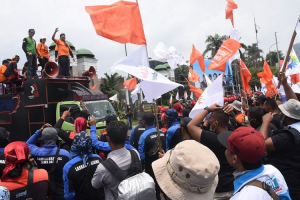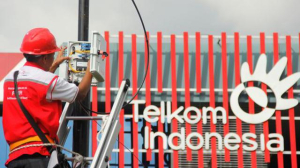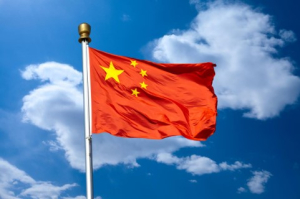Huawei expands in Indonesia despite security concerns
Published on 20/05/2022 at 09:56 GMT+7 Reading time
Chinese telecommunication company Huawei Technologies Co. Ltd. is gaining traction in Indonesia despite concerns regarding its possible surveillance and intelligence purposes.
The multinational technology corporation designs, develops, produces and sells telecommunications equipment, consumer electronics and various smart devices. According to the EU Joint Research Center (JRC), Huawei ranked second in its 2021 EU Industrial R&D Investment Scoreboard of the largest R&D investor in the world. Meanwhile, it ranked fifth in the world in US patents according to a report by Fairview Research's IFI Claims Patent Services.
In a statement to Indonesia Business Post, Huawei Rotating Chairman Guo Ping said Huawei would support the development of information and communication technology infrastructure and digital transformation.
“In 2021, Huawei also provided the first 4G network for one million people in remote villages in West Papua,“ he said on March 31, 2022.
Investment opportunities
Guo Ping said that in a meeting with Indonesia Coordinating Minister of Maritime Affairs and Investment Luhut Binsar Pandjaitan at Huawei Headquarters in Shenzhen, China, last year, they both discussed intensively about opportunities in infrastructure of information and telecommunication technology, digital transformation, 5G network, cloud and the development of Indonesia's new capital Nusantara, East Kalimantan.
He said Huawei set a target to train 100,000 local talents and 1,000 information and communication technology instructors in five years.
On March 28, 2022, Indonesia's Ministry of Manpower and the company agreed to cooperate in building capacity and developing human resources in digital technology and telecommunications in Indonesia. With this cooperation, Huawei will train 171 instructors from job training centers under the manpower ministry in digital technology and telecommunications.
Huawei Indonesia CEO, Benzhi Wang, said the company was developing 5G technology with enhanced cellular network capabilities. This technology develops applications in smart factories, smart cities and intelligent medical equipment.
Huawei Indonesia supports mobile operators like Telkomsel and Indosat Ooredoo Hutchison for the deployment of 5G services. The operational areas include the Greater Jakarta (Jabodetabek), Surakarta (Central Java), Medan (North Sumatra), Balikpapan (East Kalimantan), Surabaya (East Java), Makassar (South Sulawesi), Bandung (West Java), Batam (Riau Islands) and Denpasar (Bali), he said in a statement.
Using the 5G mmWave Device solution, Huawei 5G technology also supported the service of 5G technology during the MotoGP race at the Mandalika circuit in West Nusa Tenggara from March 18-20, 2022. Visitors can experience the 5G technology-based demos during the race, including a Humanoid Robot, Cloud Gaming, 5G Drone, Virtual Reality and AR industrial work training. With AI, Cloud, machine learning, TOT, VR and AR, 5G is critical to the industry's digital transformation.
Security concerns
Due to Huawei's expanding market share in Indonesia, Indonesian public expressed concerns regarding Huawei's security.
Muhammad Zulfikar Rakhmat, an assistant professor at the Yogyakarta-based Indonesian Islamic University (UII) School of International Relations, explained that Huawei was the Chinese government's arm considering the company's expasion to several African nations. He expressed concern that Huawei technology could be used for wiretapping and surveillance. At the same time, Huawei could teach Indonesia that it is acceptable to spy on people.
Following Freedom House data, Rakhmat said China's 5G technology had been employed for both hard and soft powers. The Chinese government has invested heavily in developing 5G technology to strengthen China's influence in Indonesia, a country with a challenging power balance.
As part of Huawei's soft power strategy, the company trains and develops human resources in Indonesia to implement censorship and surveillance. As a result, transparency and democracy will diminish in Indonesia.
Huawei, in Rakhmat's opinion, is an invaluable player in the China Digital Silk Road initiative. In 2013, China launched the Belt and Road Initiative, a multibillion-dollar project that aims to build an infrastructure connecting China and Europe. As part of the project, roads, trains, airports and digital infrastructure were developed.
"The Digital Silk Road is part of the Belt and Road Initiative, which aims at revitalizing Silk Road in a digital age, developing 5G and spreading Chinese technology," he said, adding that the project's primary objective is not just economic development and investment, but also spreading Chinese influence through cyberspace.
Indonesia ICT Institute Executive Director Heru Sutadi said that Huawei's surveillance and intelligence activities allegations are part of the trade war propaganda of the US and its Western allies against China. The trade war should not affect Indonesia, in his opinion. As a sovereign nation, Indonesia has the right to cooperate with industry players and companies.
"If there is any doubt, the Communication and Information Technology Ministry, the National Cyber and Encryption Agency (BSSN) and the National Research and Innovation Agency (BRIN) can test whether a telecommunication product is safe for state security," he concluded.
Already have an account? Sign In
-
Start reading
Freemium
-
Monthly Subscription
30% OFF$26.03
$37.19/MonthCancel anytime
This offer is open to all new subscribers!
Subscribe now -
Yearly Subscription
33% OFF$228.13
$340.5/YearCancel anytime
This offer is open to all new subscribers!
Subscribe now






